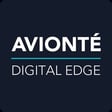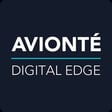
Leading Practices in Healthcare Credentialing – How to Transform Credential Management and Record Keeping Into a Competitive Advantage
In the fast-paced world of healthcare staffing, where nurses are in high demand and turnover is soaring, placing a provider into a new work assignment can be challenging for any healthcare staffing agency. The burden of collecting and verifying anywhere between 40 to 60 separate credentials has created a deluge of paperwork, hindering an agency's ability to effectively engage and retain nurses. To address these pressing issues, join Christopher Ryan, Avionté's Chief Strategy & Marketing Officer, as he speaks with seasoned industry professional, Therese Gopaul-Robinson, Owner and President of The Therese GR Company. Together, they’ll explore innovative strategies to revolutionize healthcare credentialing and create a faster, more convenient experience when placing medical talent.






